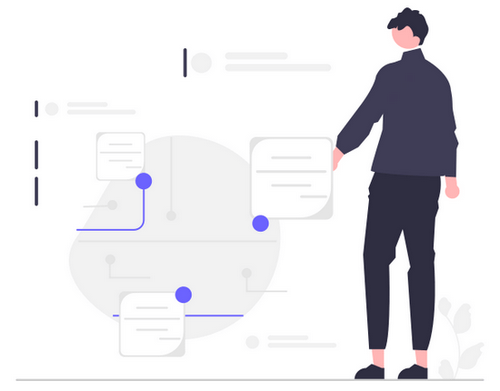Acknowledging the Power of Artificial Intelligence In This Digital Age
Artificial intelligence (AI) enables significant and rapid change for businesses in almost every sector and industry.
In particular, machine learning – a computer’s ability to improve its performance without human intervention – is driving the development of new applications that can boost productivity and provide businesses with a competitive advantage.
This article will discuss machine learning and AI and how they are increasingly relevant today in the business world.
How is Artificial Intelligence Used in Business?

Whether you work in retail, finance, transportation, or the public sector, Artificial intelligence (AI) will play a significant role in how you conduct business in the future.
This is because AI can:
- Significantly enhance decision-making.
- Boosting efficiency through process automation.
- Enable new ways of working.
- Uncovering opportunities for new products and services.
- Improving the speed or consistency of service.
- Facilitating payment automation.
At present, the pace of innovation in the field of AI is greater than that of any other industry.
The technology sector seems to be in love with Artificial Technology (AI). This technology is growing throughout the business, with uses ranging from advanced data science to automated customer service.
This indicates that all businesses, regardless of their industry or size, should begin preparing for a future driven by AI.
Unfortunately, the realm of artificial intelligence is complex and filled with hype and confusing jargon that can lead companies astray. Here, we discuss the safe and effective ways your business can profit.
Here Are a Few Preliminary Steps to Getting Your Company AI Ready
Learn the Fundamentals of AI
You can’t just go to an AI consulting company and ask them to optimize your profits if you want to harness the true power of AI. An AI ready model must first be developed within the organization itself. More specifically, it has to begin at the top.
You must thus inform top management and your organization about AI and its potential.
This does not mean that everyone must be an expert or evolve into one, nor does it mean that you will immediately need to be familiar with deep learning techniques and networks.
The goal is to start to shape the mindset of the business and strategy around the fundamental ideas that underlie AI’s operation and the things it excels at.
A fundamental understanding of AI throughout the organization would be quite beneficial. Simply explaining these fundamental AI ideas might improve organizational structure and data management methods.
To minimize misconceptions and divergent views on technology, it is important to spread information and strategy from top to bottom to succeed with AI.
Identify the Problems You Want AI to Solve

The next stage for every business is exploring other concepts after you are familiar with the fundamentals. Consider how you might enhance the capabilities of your current goods and services and improve sales with AI.
More essential, your business should consider particular use cases where AI may help with business issues or offer significant benefits.
Bring In Experts and Set Up a Pilot Project
When your company is prepared organizationally and technologically, it’s time to begin constructing and integrating.
Start small, have project goals in mind, and, most importantly, be conscious of what you do and do not know about artificial intelligence. This is when hiring outside consultants or AI expertise may be helpful.
What You Will Need To Implement AI Effectively

The initial focus of AI ready tools was on academic research and idea-proofing. However, a new generation is now emerging that offers end-to-end AI, enabling businesses to quickly and affordably implement the technology.
When selecting AI ready technologies, you should consider business objectives and financial limitations. This will enable you to calculate the time required to develop an AI ready model suited to your specific needs and the total cost of ownership.
Build With Balance
Building an AI system also requires balancing the demands of the research project with those of the technology. Furthermore, the overarching idea is that you should develop the system with balance, even before you begin to design an AI system.
Although it may seem obvious, too frequently, AI systems are developed without consideration for the requirements and limitations of the hardware and software that would enable the study, instead focusing on particular features of how the team anticipates attaining its research goals.
The end consequence is a subpar, even defective, system that cannot accomplish the desired goals.
Examples of Artificial Intelligence in Business
You might be surprised to learn how regularly firms employ AI. The uses of AI are essentially limitless, ranging from customer service to operations to marketing. Here are a few instances of business apps for artificial intelligence.
- Improving customer service.
- Providing product recommendations.
- Segmenting audiences.
- Analyzing customer satisfaction.
- Identifying fraud.
Conclusion
Today, companies must understand the value of AI in enhancing business to compete; nevertheless, before using AI, businesses must make the necessary precautions.
As this blog post has explained, businesses must take several measures to ensure that the right technology and strategy are in place to use AI successfully.
WPBN is curated news aggregator website focusing on trending and hot news from the WordPress community.






